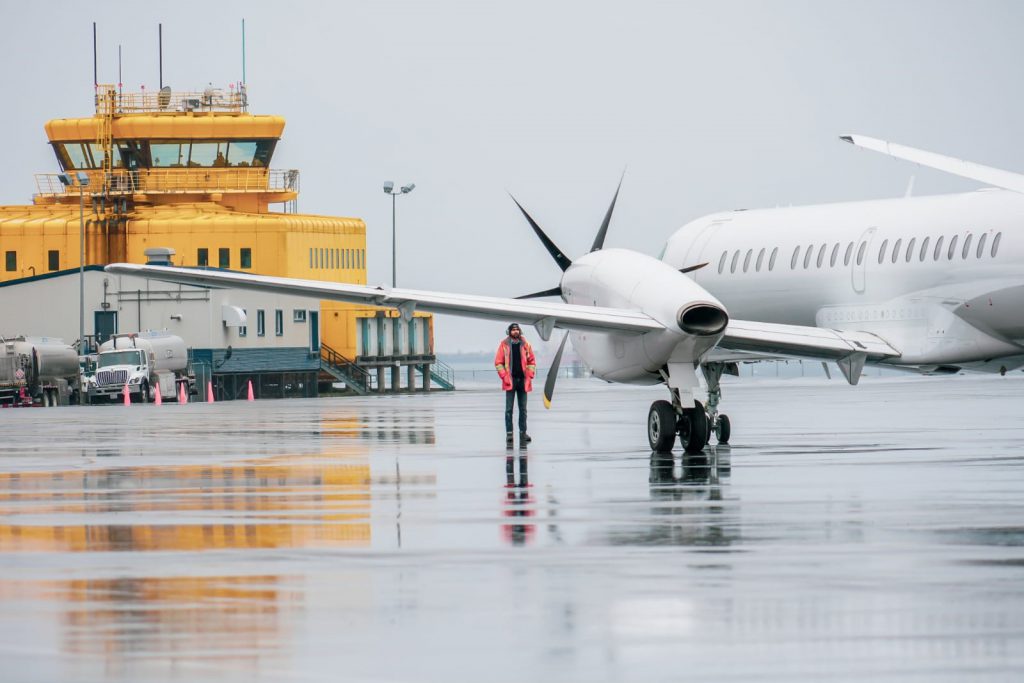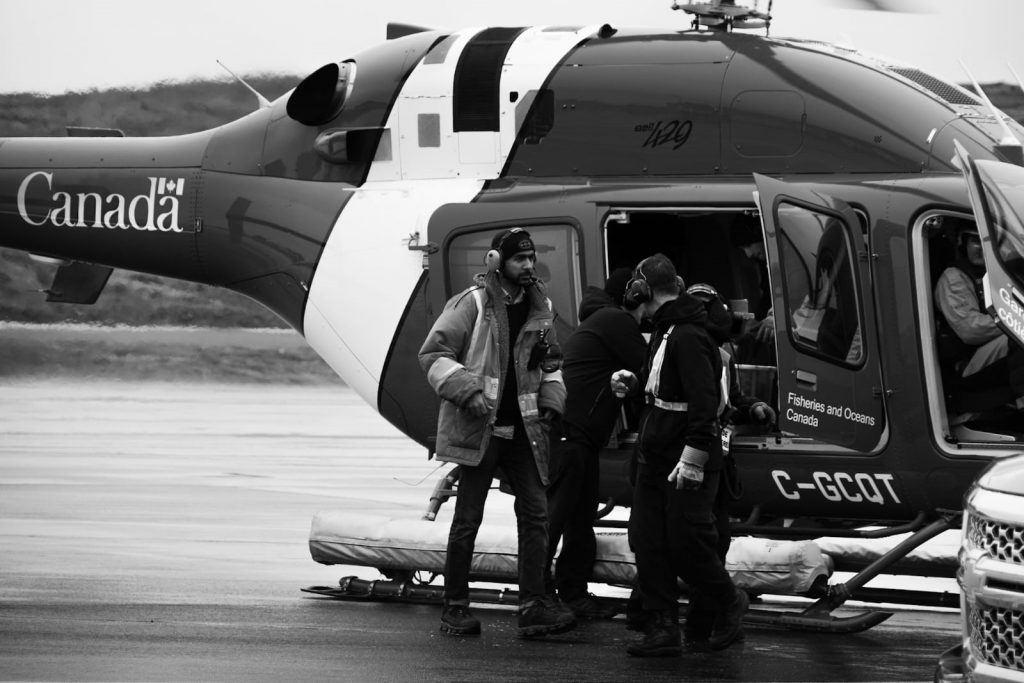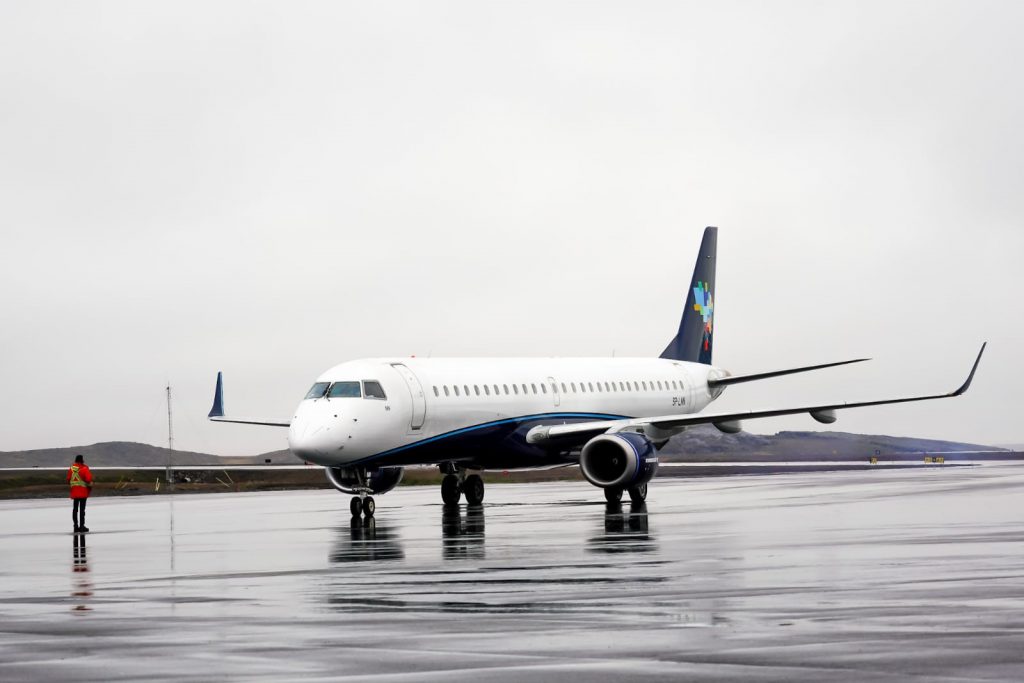What’s being on co-op like? Hussam’s story
July 9, 2019
NAME: Hussam Beg
PROGRAM: Aviation Management (co-op) (first year)
MOST RECENT CO-OP: Customer Service & Ramp Support, Frobisher Bay Touchdown Services, Iqaluit International Airport. May to August 2019.
Was co-op an important part of your decision when you were choosing a college/university?
To be honest, I was not familiar with the term “co-op” and what it meant. My criteria when I started college-shopping was more about the program, subjects and overall fit. However, I learned what it is during my search and recognized that it could be a great opportunity.
Why did you choose Georgian?
As an international student, I was drawn to Georgian College for several reasons. First, the courses in the Aviation Management program matched what I wanted to study. Also, the possibility to get exemptions from courses I had already studied or had demonstrable work experience in was a big plus.
I think Georgian’s marketing team has done a great job positioning the college as a vibrant, diverse and friendly institution on social media, so that played a role too. The college’s focus on entrepreneurship was another feather in the cap.
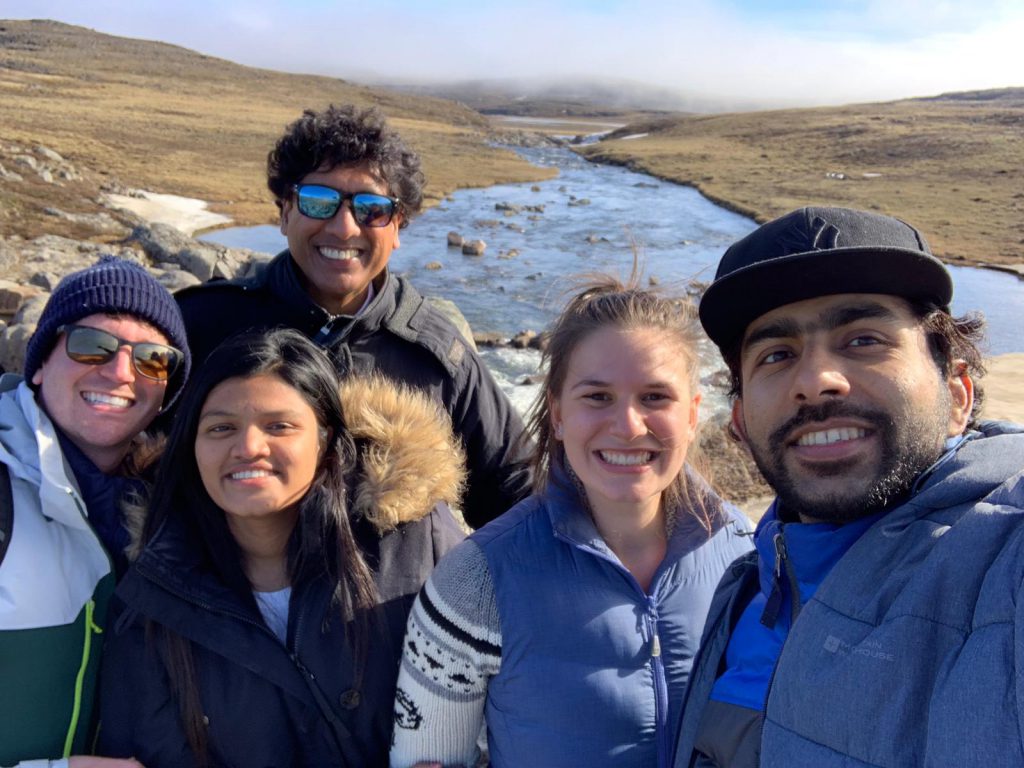
However, it was the responsiveness and encouragement of my program co-ordinator, Derrick Todd, by email and on the phone during the application process that really sold me on Georgian.
What drew you to the aviation program at Georgian?
Aviation is in my DNA. My dad is in the travel industry, and I began working at an airline when I was 17. I actually worked in the Middle East and the Caribbean before coming to Georgian.
Why did you pursue Iqaluit International Airport for your co-op?
I chose Iqaluit for all the reasons that would be deal-breakers for most other students.
I was cautioned in different ways about Iqaluit. People said it’s very cold, there are no trees, food is expensive, there’s really nothing much to do, little entertainment, it’s a depressing place and so on. But I wanted to go first and foremost because I knew it would be an unprecedented experience to live in the arctic and, worst case, I would only have to endure it for four months. Secondly, I love wilderness and the song of nature more than the hustle and bustle of the city.
Living relatively close to the the North Pole is not an experience to miss! I also wanted to learn more about the Inuit culture and interact with the locals to have a better appreciation of their customs and norms.
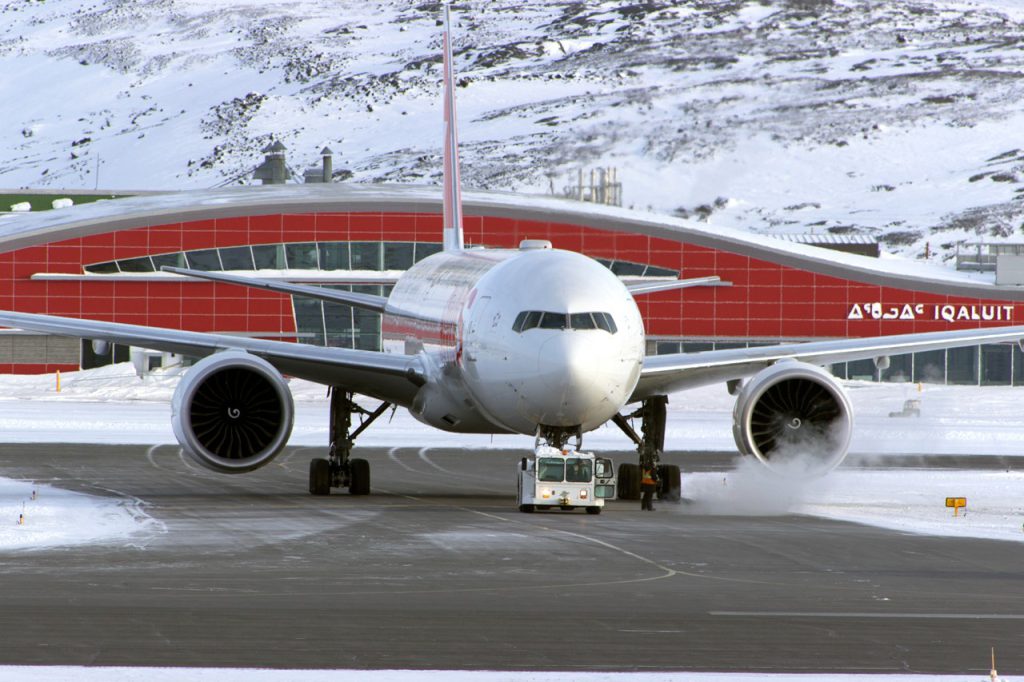
What exactly do you do there?
I was hired for the summer co-op along with my fellow classmates, Matt Walters and Megan McRae. Our employer is Frobisher Bay Touchdown Services, an airport facility that serves as a ‘mini airport terminal’ for unscheduled (corporate, military, private) flights.
I have two main roles: as a Customer Service Representative (CSR) and as a Ramp Agent. As a CSR, I work the flight operations email, receiving and processing requests for incoming flights and coordinating arrangements with other service providers at the airport for our customers who are aircraft operators. The work also involves planning, processing payments, coordinating with the accounts department, record keeping and setting/following best practices.
My duties as a Ramp Agent involve tracking inbound flights and going out to marshal them safely onto our apron, securing the aircraft, meeting and greeting crew and passengers, providing for their needs and overall ensuring their stop in the cold arctic north is met with warm hospitable service!
Other roles that are essential to the job include daily office opening and closing, facility upkeep, driving within the airside and in the city, using ground support equipment and even operating the Bobcat.
Overall, it’s a mix of both behind-the-desk work as well as a very hands on experience. It’s a highly responsible job both from a safety and security perspective.
What’s your favourite part of the job so far?
Being able to not only watch but actually work with different aircraft that are on diverse missions, meeting and interacting with crew from all over the world and the ever-present element of ‘surprise’ – not knowing how the day will turn out – makes it so interesting.
For example, a young woman from India landed at Iqaluit for a technical stop as she continued her record-breaking world circumnavigation tour. Capt. Aarohi Pandit is flying solo on a powered glider and made headlines last month (May 2019) when she became the first woman to fly solo over the Atlantic in a light sports aircraft.
Also, in August we’re expecting the legendary WWII-era Spitfire aircraft to land at Iqaluit.
From massive military aircraft to the sleekest private jets and everything in between, we work with them all!
I’m very fortunate to be working here with my two classmates, Matt and Megan, who are super helpful and add greatly to my overall experience. We are a great team!
What are some of the challenges of living in the far north?
Not having as wide a range of day-to-day food and shopping options is a challenge. Also, while some basic food items are government subsidized, other non-essential items can get quite expensive. But Amazon does deliver here so that really helps. The city is quite small, landlocked and not connected to any other place (accessible only by air or by sea).
What’s been the most interesting personal experience (or experiences) so far?
These days the sun sets close to 11 p.m. and rises at about 2:15 a.m. The night is short and the twilight remains even after sunset. So there is perpetual light in the sky. At the peak of the winter, I’ve heard that this will reverse and there will only be three hours of sunlight. Hiking is a really fun activity and I’ve already been on a few hikes with my classmates. The city is on mountainous terrain with water streams throughout. There’s a park named Slyvia Grennel that’s known for its good BBQ spots and splendid views of the city and the bay. But despite it being called a “park”, there’s no grass or fauna.
Most residents here own snow mobiles, and dog sledding on the frozen bay is common. In the evenings, the sights and sounds of huskies howling in the bay as they pull the sleds really captivates me. The most common bird here is the arctic raven. They’re tough and loud, but beautiful and can withstand -60 degree Celsius.
As the summer approaches, we’re seeing some geese and a couple of smaller birds. The arctic fox and arctic hare are also native to the region. I haven’t seen a live polar bear but have heard they ventured into the city in the recent past. People who go on nearby expeditions bring back the polar bear skin.
Another great hiking place is the Road to Nowhere (official name of the road). Unfortunately, the road sign gets stolen every time it’s put up because it’s so unique. The road literally winds down and ends near a shooting range with mesmerizing views of the mountains and the valleys on the way.
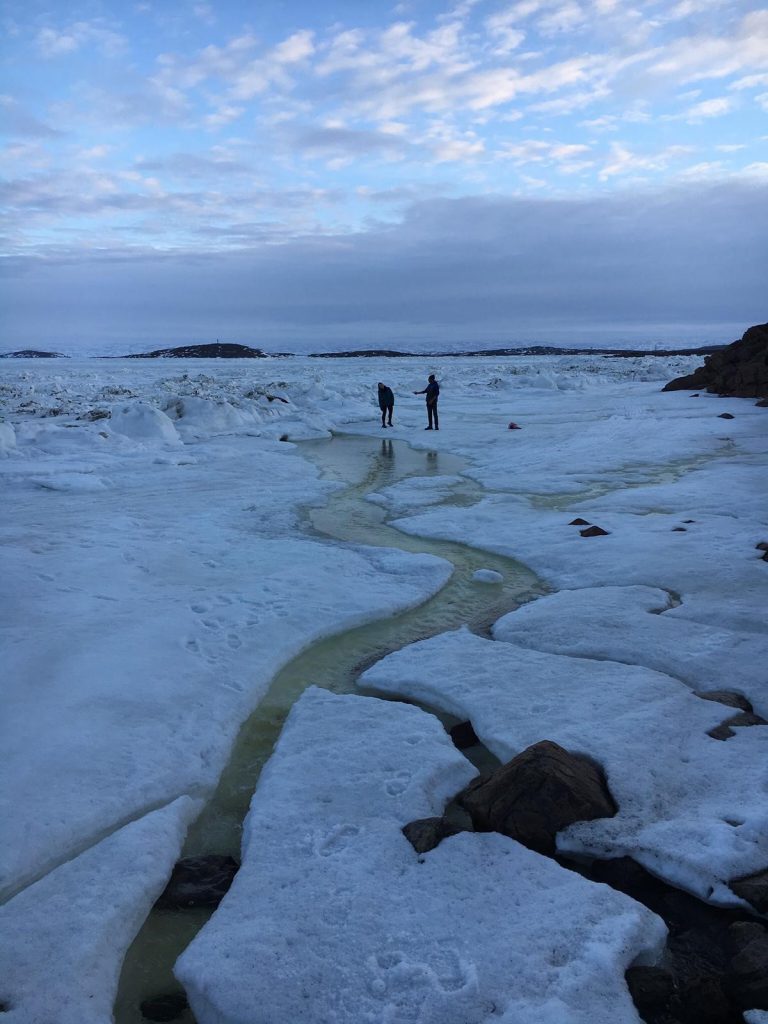
For those who are fortunate to come here during winters, they will get to see the Northern Lights dancing in the sky pretty much every night. Too bad we will be missing out on it. As the sea ice melts, we are looking forward to fishing and sailing.
What role will this co-op play in the development of your career?
I think the co-op in Iqaluit provides an unparalleled learning opportunity both at work and beyond.
At work, one gets to wear different hats and learn an array of skills that can be put to use in many different situations. Outside of work, living here makes one a responsible and decisive individual.
I believe this co-op will certainly open doors because certain employers do look for experiences like these on a resume that make it stand out from other run-of the-mill jobs.
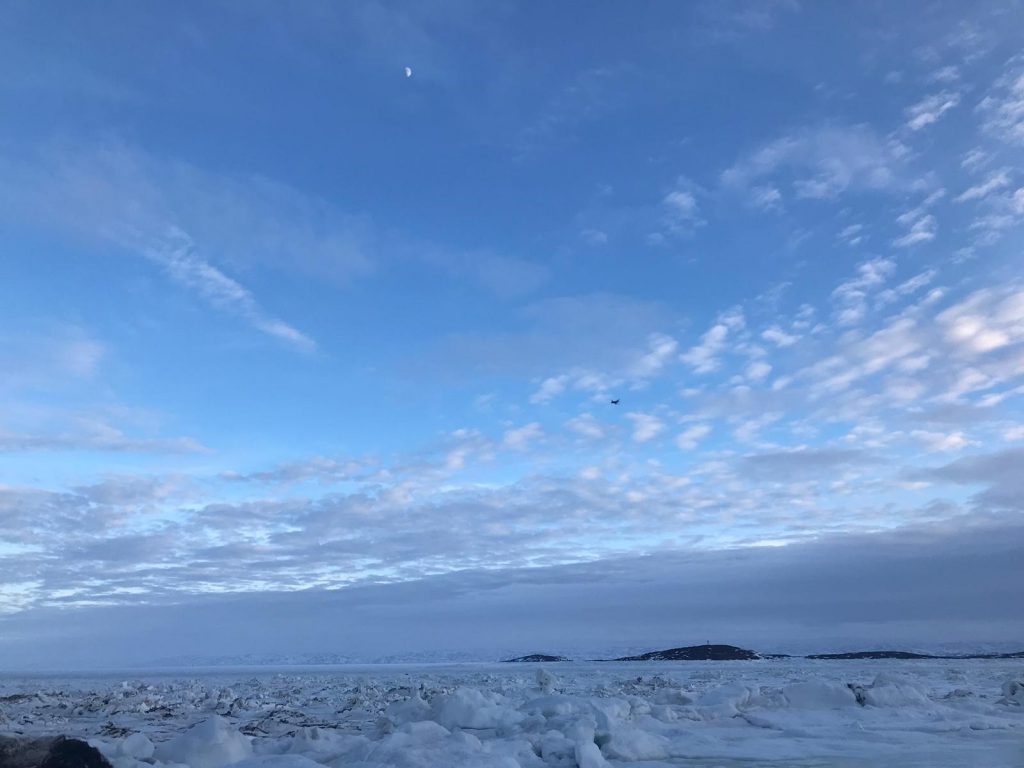
What advice do you have for students exploring their co-op options?
Depending on what program you’re in, co-op can be very competitive. Before even the co-op job portal opens, be armed with a neat resume and a strong cover letter where your individual personality shines through. Even if you don’t have any previous work experience, you’ll have certain life experiences worth mentioning. The effort is only to capture your uniqueness and suitability for a job on your cover letter. This exercise can take a few days and lots of revisions. Ideally work with someone who knows you well to capture from your life what achievements, skills and experiences stand out and then articulate it to sell yourself on your cover letter. A good point to mention is why you joined your program. Take feedback from your co-op consultant as well as family, senior students and perhaps even your professors.
If you really like a particular co-op position, try to find out if anyone from your program has already been on that co-op. This will give you valuable insights and clarity that will help you in your decision-making.
Being attentive in class and gradually participating more in class activities and interactions with professors is a great way to overcome shyness. Any nervousness about speaking in groups will naturally fade away as you become more confident in your interactions with teachers and other students.
Also know that some co-op employers do take recommendations from program co-ordinators/professors on who to select for the job. With hard work and integrity, it is not uncommon for a co-op work term that leads to a repeat co-op with the same employer and sometimes even a full-time position after graduation!
So approach the job with a sense of responsibility and give it all you can. One way or another, doors will open. All the very best!
Want to learn more about co-op at Georgian College?
Visit our co-op page or read about other students’ experiences:
